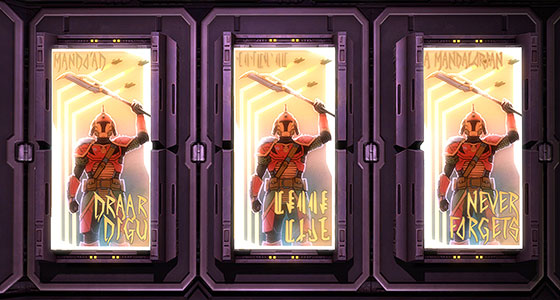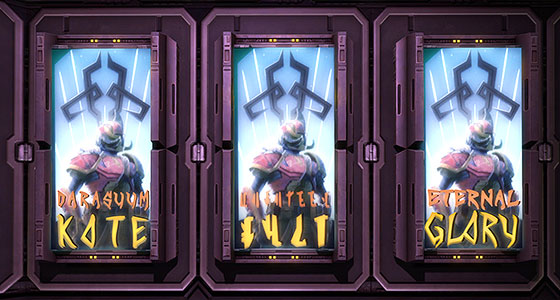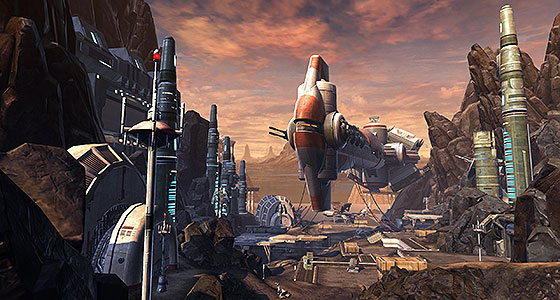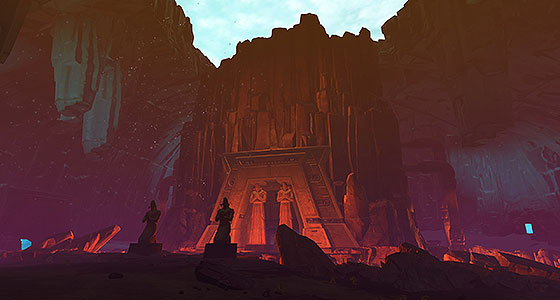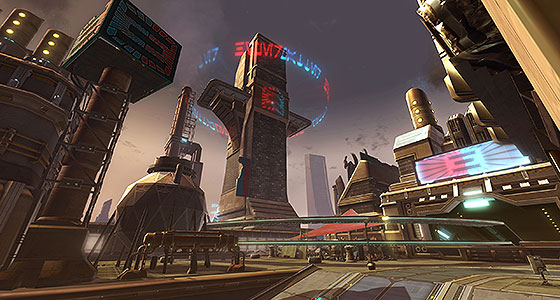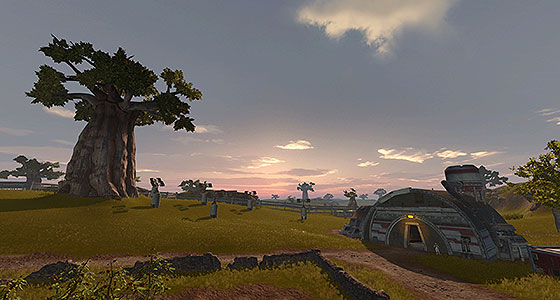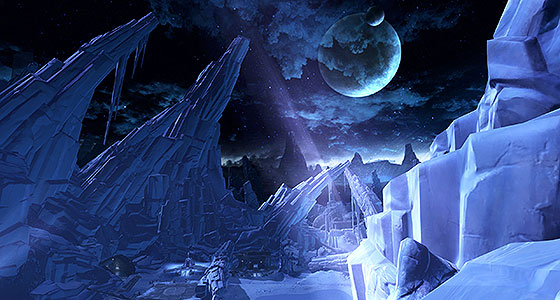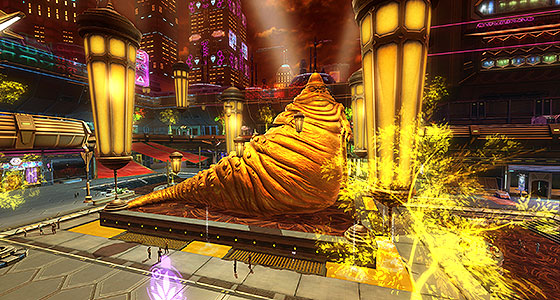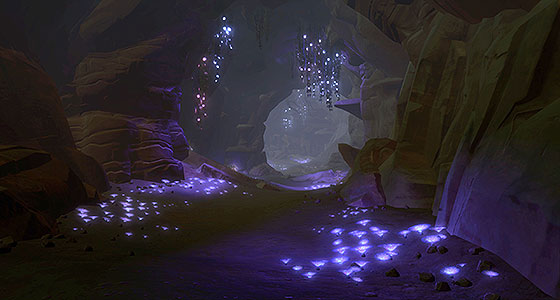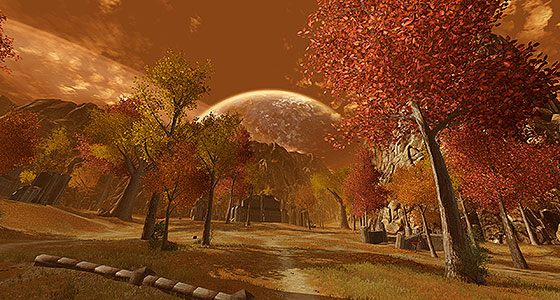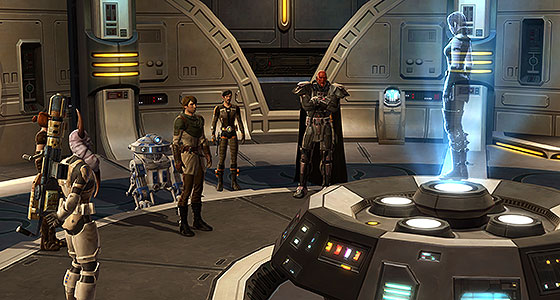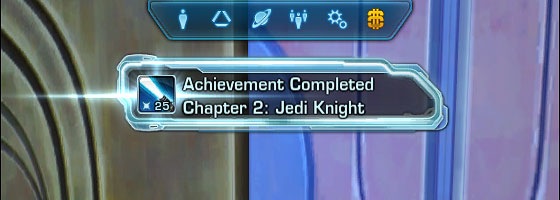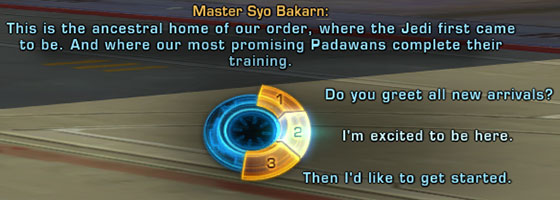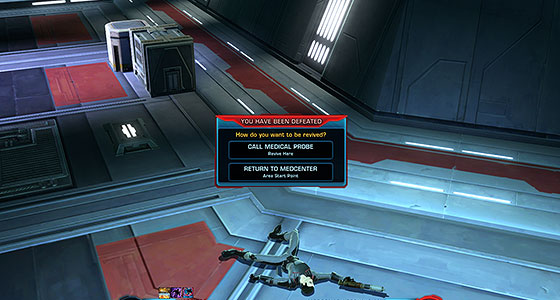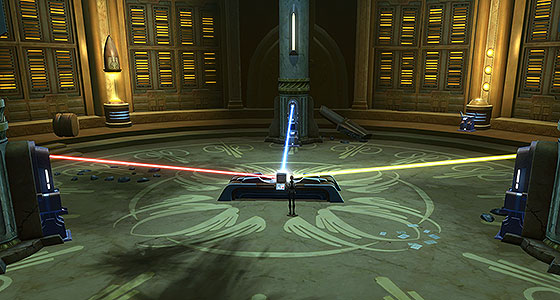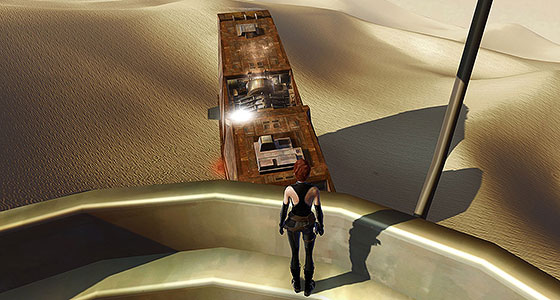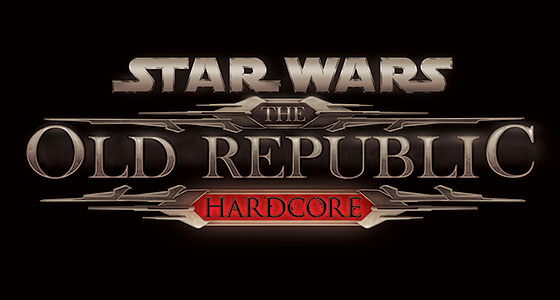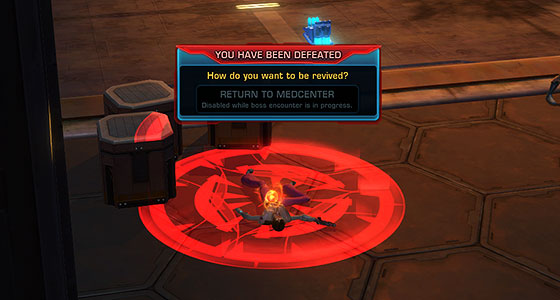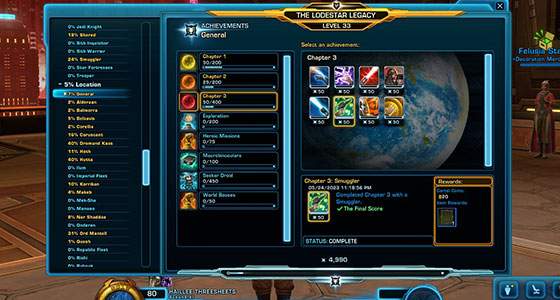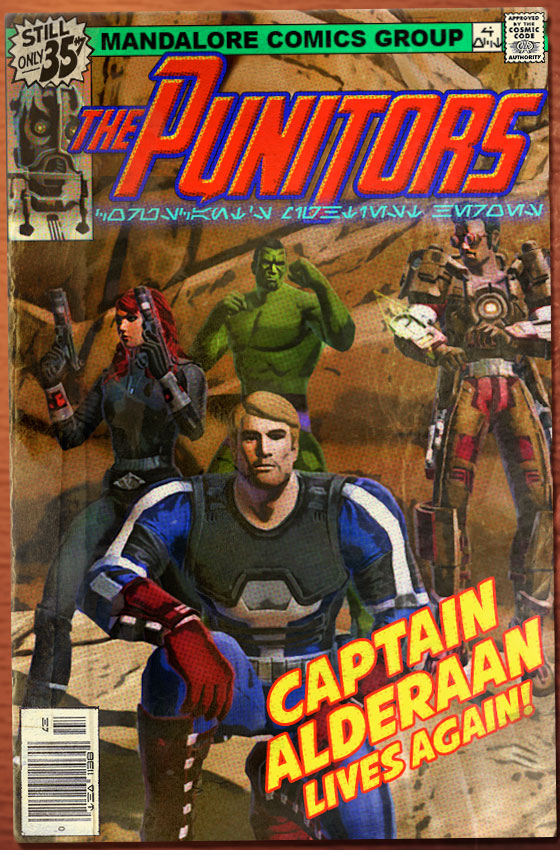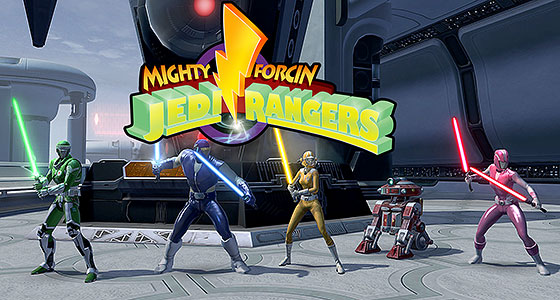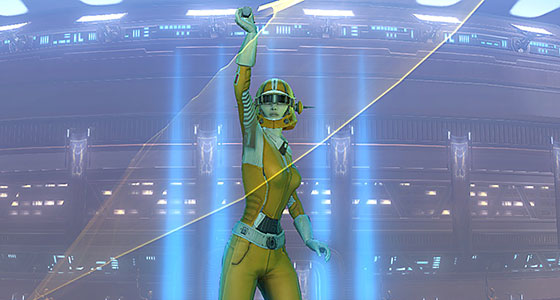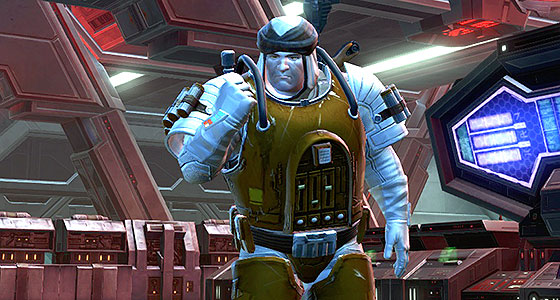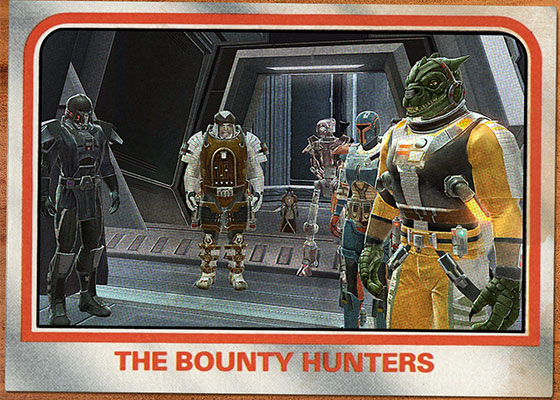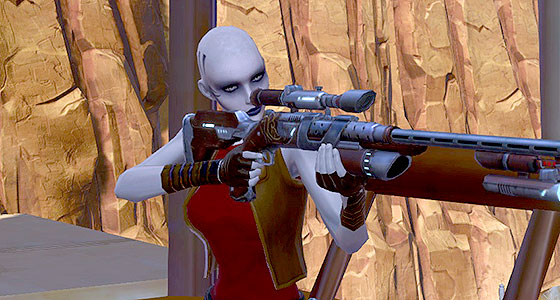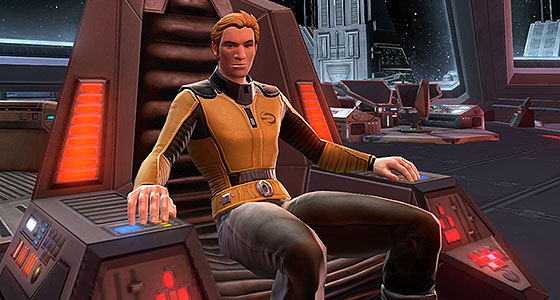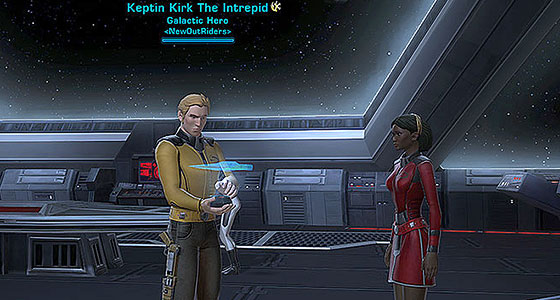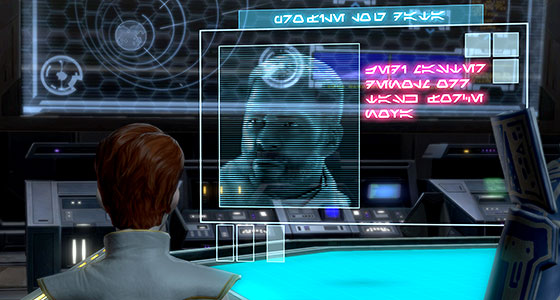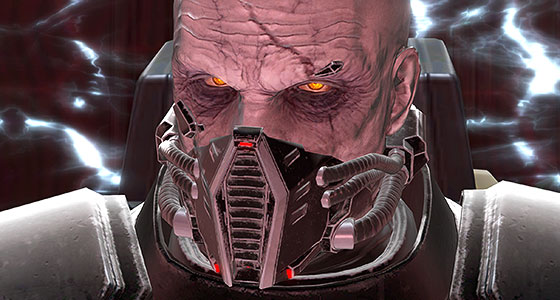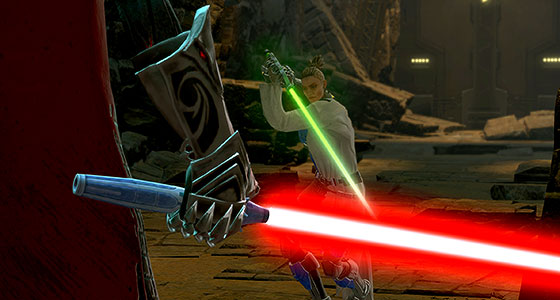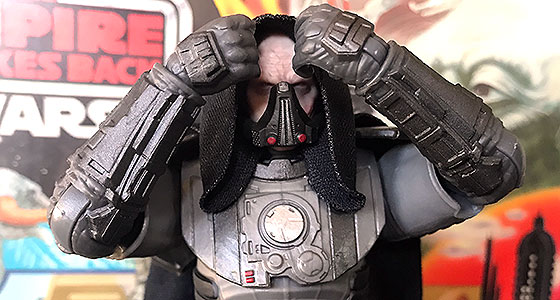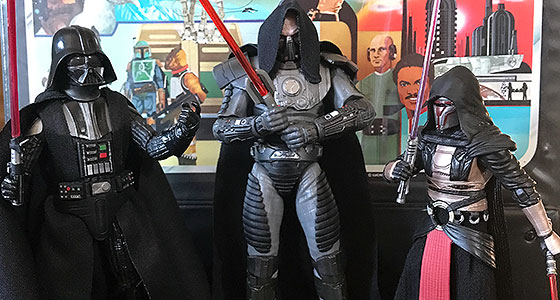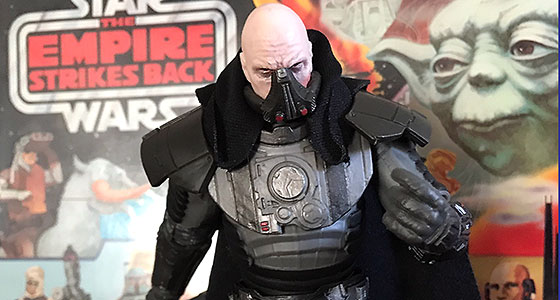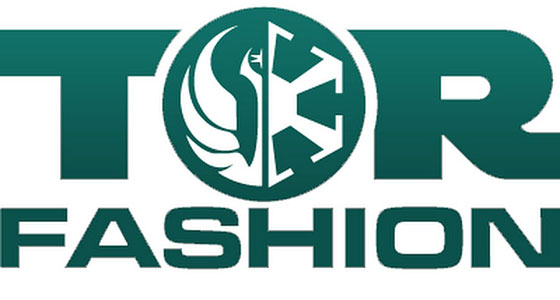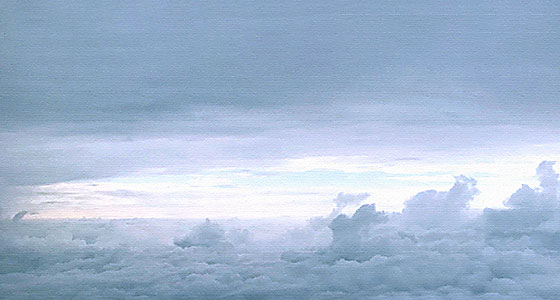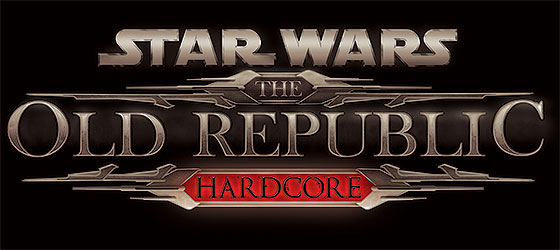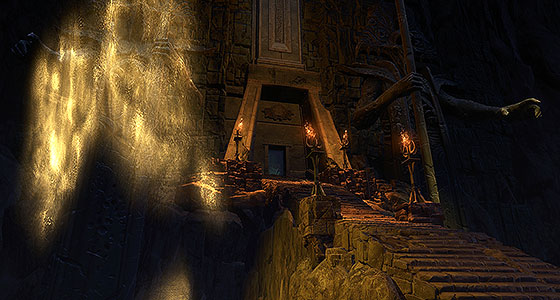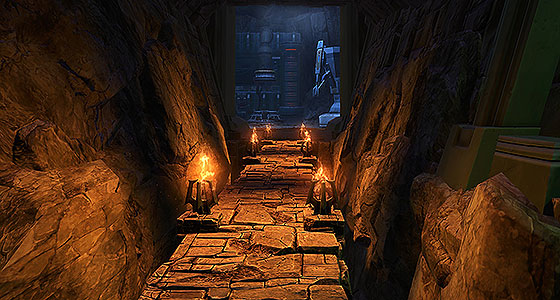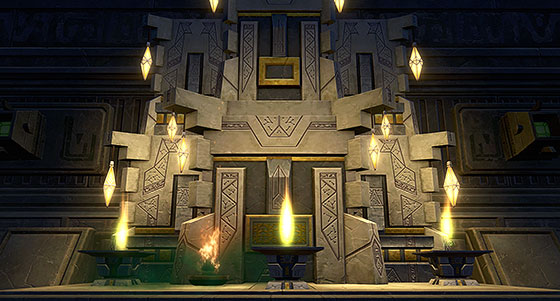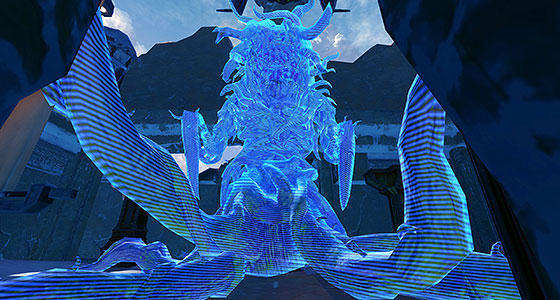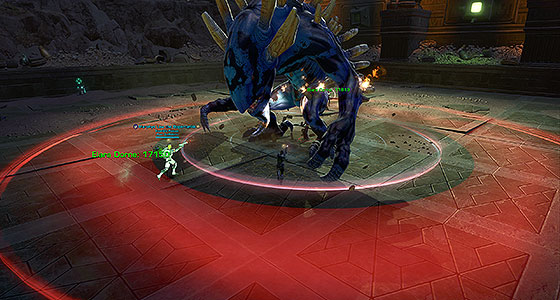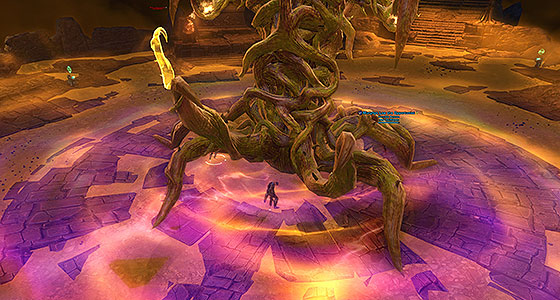This week, to end the year in style, let’s take a look at a pair of unexpected additions to SWTOR from Game Update 7.4, Chains in the Dark: two propaganda posters featuring none other than Heta Kol.
These new posters were a surprise to be sure for two reasons. First, these graphics, as well as some other Republic and Imperial fleet posters were unannounced additions, but it’s also odd that Heta Kol would be promoting herself on the Fleet hubs while the forces of her Hidden Chain invades the worlds of the Empire and the Republic.
Within the context of the game world, two explanations spring to mind. Perhaps the Hidden Chain sliced into the Fleets’ advertising systems to illicitly include their own propaganda as a form of digital graffiti. Another possibility is that the Republic and Sith Empire are so hard up for ad revenue these days that they’ll take credits from anyone. Frankly, that second explanation feels all too realistic and plausible.
But let’s take a close look at the posters themselves. The text of both uses the Mandalorian alphabet which was created for Attack of the Clones but continues to be used and refined in live action Star Wars including The Mandalorian. As with the Mandalorian language banners introduced in the Spirits of Vengeance flashpoint, these posters translate not into English but into the Mando’a dialect, which was first introduced in the Republic Commando novels but has also been developed in other media.
Because the text does not directly translate into English, the challenge in translation was two fold, and I decided to create both Mando’a and English language translations of the posters. Typically, my recreations feature letter-for-letter transcriptions whether the source is Aurebesh or another alien typeface, but in these cases the English language translations do not exactly align with the Mandalorian originals. Fortunately, the message of these posters is direct enough that the changes I made don’t feel like they have dramatically upset the posters’ original designs.
As for the translation itself, Mando’a is not a fully developed “conlang” or Constructed Language like Dothraki, Elvish or Klingon, and most of the usage we see is chiefly concerned with the kind of things Mandalorian are typically going on about anyway. Since the intent of the posters is to be propaganda that delivers a short, direct message, I don’t think I needed to look for nuance in my translations, despite the temptation.
The design of these images are similar to wartime propaganda posters that you might have seen in real life or scattered across SWTOR’s worlds and Strongholds. Both posters feature a powerful portrait of Heta Kol against a background that propels the viewer’s gaze upward to the sky, along either beams of light or launching spaceships.
The background of the second image features an emblem that is new to players with this update. This seems to be the symbol of the Hidden Chain, and it is also featured prominently on the swanky new red and bronze armor worn by Mandalorians of the Hidden Chain. I think the iconography of this symbol is worth exploring.
Let’s start in the center, that hexagonal shape has its origins in the breast plate of Boba Fett’s armor and has over the years come to be symbolic of the entire Mandalorian aesthetic from their armor and spaceships to their art and architecture, particularly as seen in The Clone Wars and Rebels shows. On either side of the hexagon, two shapes that appear to be links of a chain seem to pull apart the hexagon which is broken into two pieces. The symbolism is clear: the goal of Heta Kol’s Hidden Chain is to tear apart the traditional structure of Mandalorian culture.
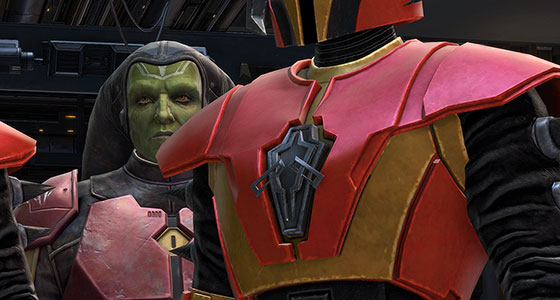
I don’t think Heta just wants to be the next Mandalore. She truly wants a revolution that will remake Mandalorian culture into something else, for better or worse. This is why Shae Vizla has reacted so strongly and stridently to the Hidden Chain’s challenge. Heta isn’t being subtle in her intent as we saw when she destroyed the Clan Cadera banner on Ruhnuc for all Mandalorians to see. This perspective reinforces the central theme of SWTOR’s story over the last two expansions. Darth Malgus wants to break free of the endless cycle of conflict between the Jedi and the Sith, which has left him chained physically, mentally and metaphorically. Similar questions are on the mind of Sa’har Kateen and Shae Vizla as they try to make sense of their places in a new and changing galaxy that is still emerging from the ashes of the war with the Eternal Empire.
To me, this is all very cool. These graphics echo the themes of the story, and the story is connected to their design. Sure, they are neat posters, but they also enhance the player’s experience of the story within the game world. You don’t need to know the literal meaning of Heta’s propaganda to understand its intent, and that’s a mark of very good design.
My Hardcore Journey – Act Three
Finally, let me share the conclusion of my Hardcore Journey with the completion, just barely, of Act Three of the Jedi Knight story.
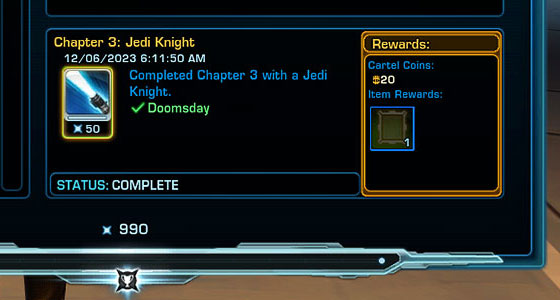
My biggest surprise about this challenge is that it turned out to be harder than I expected. My choice of Shadow for Combat Style turned out to be most fortunate; the ability to exit combat with Force Cloak saved me from certain death on multiple occasions. As I neared the conclusion of the Jedi Knight story, I barreled ahead at full speed, and took on the Emperor for the first time in years, with only a vague memory of the encounter’s mechanics. T7 was defeated quickly, and I would’ve followed soon after had I not hit Force Cloak to reset the encounter. A quick Google search reminded me what to do, but even so I only survived by the skin of my teeth.
Looking back at the experience, my main piece of advice is to take it slow. While within the level range of a planet and wearing only quest rewards for gear, a group of two or three enemies could be a lot more dangerous than I might expect, and my companions weren’t always as helpful as I would’ve liked them to be. “Kira! What are you doing?!”
One thing I would change is to fuss less with heroics, and do more side quests. I rate the experience gains from planetary side quests higher than the gear upgrades from heroics. Entering nearly every new planet while three levels lower than the mobs I encountered was usually fine, but led to some spicy combats that would’ve been trivial with a couple more levels under my belt.
As for crafting, I stuck with Artifice and it did eventually result in a steady supply of purple quality color crystals, but I found it more trouble and expensive than it was worth to craft level appropriate lightsabers or off-hands, and I suspect this would have been the case for any other crew skill I might have selected. That said, next time I go, I think I’ll give Biochem a try. My Jedi Knight never wanted for medpacks, but I wonder if a constant supply of stims could have helped out more.
I also want to remind readers that as of this post, there is still more than three weeks to enter my Act Three raffle. All you need to do to enter is to show me that you’ve completed Act Three of any class story on the brand new Shae Vizla server. I’ve received many entries already and it’s been neat to hear about folks’ journeys on SWTOR’s new home down under. It’s also been gratifying to hear that many of you have taken up my Hardcore Challenge as well. This raffle features the biggest prize pool I’ve ever offered, and there is still plenty of time to enter!
Finally, let me close out 2023 with thanks to everyone who has visited my little corner of the Internet this year. I strive to have a slightly different perspective on Star Wars: The Old Republic, and I’m looking forward to new adventures in the year to come, and I hope to see you there as well!

